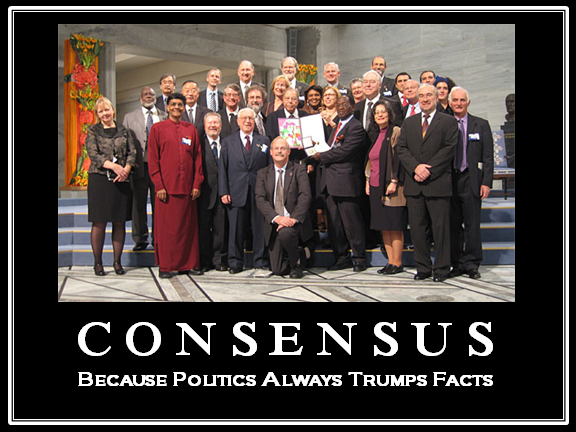
I received a question from a reader today regarding why the writer of a recent article summarizing the state of the science on cloud feedbacks did not mention our newly published work.
The usual suspects were questioned, but there was nothing new there. Cloud feedbacks are just as uncertain today as they were 20 years ago, blah, blah. More of the same.
Now, I would like to think our new paper demonstrated not only the main reason why cloud feedbacks have remained so uncertain, but why their estimation from satellite data tends to give the illusion of a sensitive climate system.
None of the so-called experts mentioned what has been ignored as a potential climate change mechanism: Natural cycles in cloud cover. I had wondered for years why no one investigated the possibility, and our work clarified for me that this indeed is a huge question mark that most researchers do not even realize exists.
Unfortunately, I predict it will be at least 2 years before our paper is digested and believed by influential people in the climate community…if even then. (They still think the truth is lurking in computer models somewhere…just turn this knob a little more to the right left…)
This brings up the issue of how entrenched some ideas get in the scientific community, and not only for scientific reasons.
Dr. Roy in a Previous Millennium
In an earlier life, my claim to fame was demonstrating that satellite passive microwave radiometers could be used to measure rainfall over land. My first paper on the subject (actually, my first published paper ever) had the cover illustration on the front of Nature magazine. Ha! If they only knew I would grow up to be a “denier”.
At the time (1983) the established scientists working with NASA wanted to build the first weather radar to fly in space. While this was a worthy effort in its own right — finally realized with the Tropical Rainfall Measuring Mission (TRMM) — one of the radar’s original justifications was to measure rainfall over land.
My work was apparently providing evidence it was not needed. So, as a post-doc newcomer to the field, I was rocking that boat.
For me, that experience was when I lost my innocence. My research worldview was shaken. Scientists are not objective after all! Gasp!
Now, even after over 20 years of telling people of all of my subsequent experiences that only reinforced my claim that scientists are not objective, it seemed like no one was particularly worried about this.
Then Climategate broke upon the scene. Scientists behaving badly! Gasp!
What Was I Talking About? Oh, Yeah, Cloud Feedbacks
So, what I am getting around to is that it will take a long time before the climate research community looks at, understands, and believes what we have done.
Sometimes I have half-jokingly mentioned that it will probably take an IPCC-ordained scientist to “discover” the same thing. I experienced that behavior, too. NASA research centers can be pretty competitive with each other. If it wasn’t invented at their center, it wasn’t invented.
So, getting back to the original question: Why did this science writer not mention my work in his summary article on cloud feedbacks? I’m afraid he’s the last one I would expect to know.
Consider:
1) Most scientists, let alone science writers, will not even be aware that our paper has been published.
2) Even if they know it has been published, they won’t bother to read it because they have already heard it conflicts with IPCC orthodoxy.
3) Even if they dare read it, they probably won’t take the time to understand it, and so they will revert to the IPCC party line, anyway.
4) Even if they read it and understand it, they will not recognize its importance. After all, the reviewers made sure our paper was sanitized so that it would not make any outright claims that could potentially shake the faith of the Believers. The reader will instead have to know enough about the field to figure out for themselves what the implications are.
Fortunately, I have been getting some good feedback in recent days (Hah! Feedback!). A nice note from Lord Monckton basically said, “NOW I see what you have been talking about!”
A blog reader who doesn’t even do climate research read the whole paper and understood it. Now, THAT is cool.
But, while this is heartening, we still need the mainstream climate scientists to pay attention. Unfortunately, scientific discovery never was the purpose of the IPCC, and you disagree with them at your professional peril.
 |

 Home/Blog
Home/Blog



